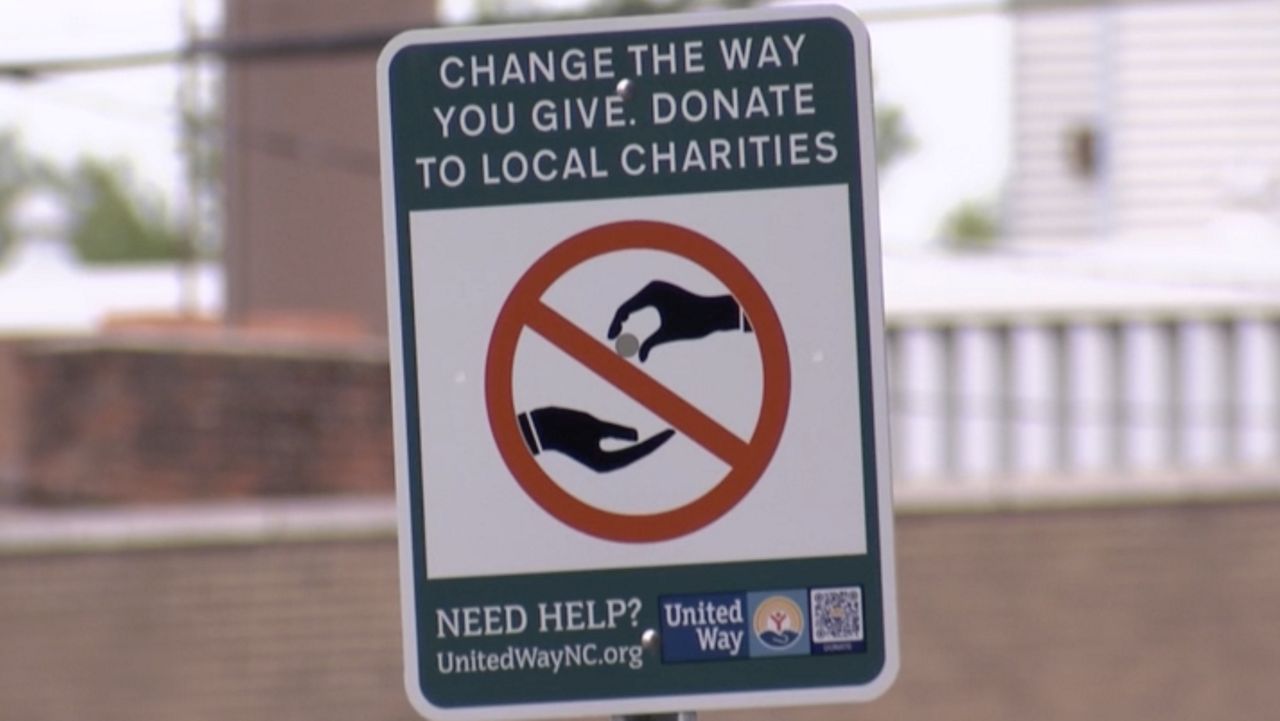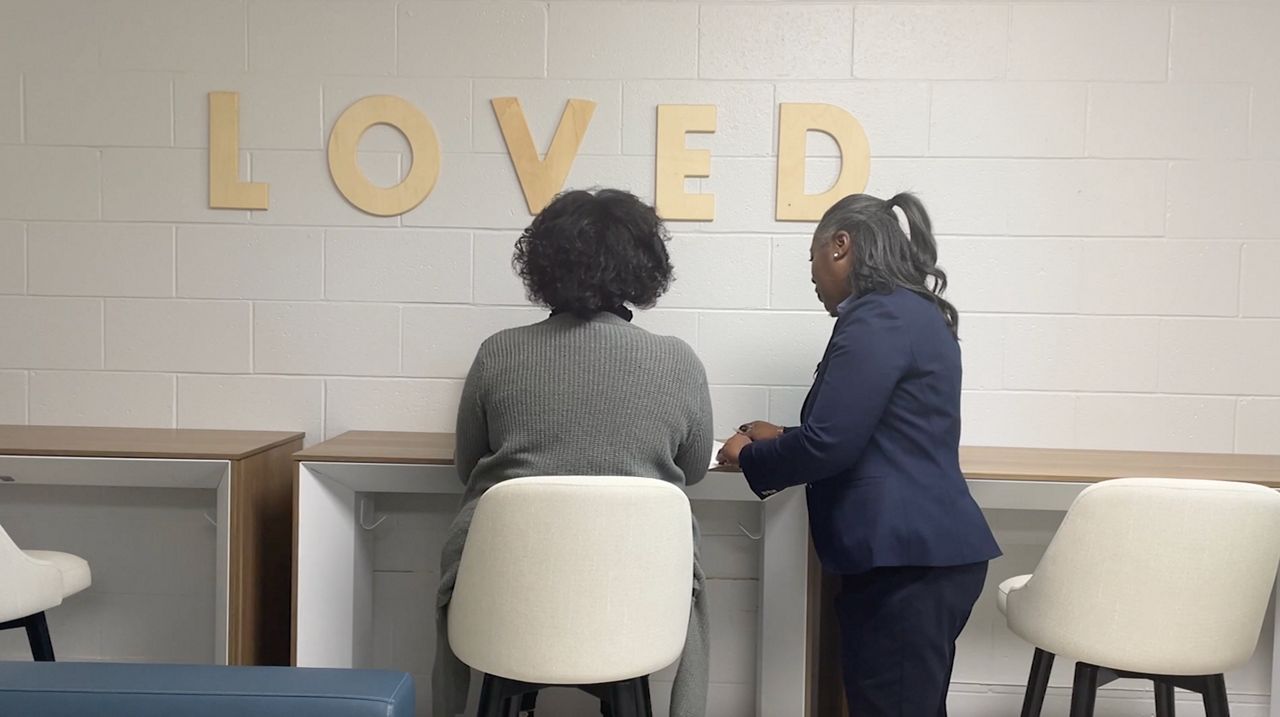RALEIGH, N.C. — On the outside, Etienne Phillips looks like an average college student. But what you can’t see are the battles he faces daily.
“I’ve been struggling with some form of homelessness or housing insecurity since March of 2020,” Etienne Phillips said.
What You Need To Know
- Research shows 15% of students at N.C. State have experienced homelessness since the start of the pandemic
- The Host Home program will provide students temporary, safe housing
- The program is expected to launch in the fall
Phillips is a transfer student at N.C. State University. He started his college career attending Guilford College, taking on a job as a math tutor during his spring semester in 2020. But instead of worrying about grades, Phillips had a bigger issue on his plate.
“I didn’t come from a great home. In February of 2020, it was made clear that I wasn’t welcome back home,” Phillips said.
Then the COVID-19 pandemic hit.
“I hadn’t figured out what I was going to do. I was still in that phase where I was learning how to be an adult on my own, there were lockdowns because of COVID. At the time I started staying with a sibling in Asheville,” Phillips said.
His job as a math tutor was in limbo because of uncertainties surrounding COVID-19 in the early stages.
“I didn’t have a car or a job, figuring out food situations and trying to do grocery shopping and trying to get a job – but there were no opportunities because of COVID,” Phillips said.
Phillips made the decision to take the following 2020-2021 school year off to focus on how to get on his feet.
“I was eating one meal a day. There were some days I didn’t eat at all,” Phillips recalled.
Phillips said he relied heavily on the economic impact checks that were distributed in 2020. He put the money into savings in order to afford a place to rent, with the small amount remaining to buy food. He also found an online tutoring job to help pull in income.
“I am either going to sit here and do nothing forever, and work for barely a living wage, or I can go and get an education,” Phillips said.
With an acceptance to N.C. State, Phillips moved to Raleigh in July of 2021. The majority of his tuition was covered by need-based grants. He was recently approved for a SNAP benefits food card and was able to join the meal program on campus.
“A few extra dollars left over to spend on textbooks and stuff but as for a living expense, I don’t get a lot from the school,” Phillips said. “I am constantly concerned trying to keep up a working schedule while also in school, also trying to participate in extracurriculars while also trying to have a social life, all of which I am not successfully balancing.”
That’s where the new Host Home program comes into play. The program has been in the works for a few years at N.C. State.
It will match students like Phillips, who face housing insecurity, with people in the community to offer a safe and temporary place to live while in school.
Mary Haskett, a professor at N.C. State University, says the program has been in the works for several years.
“In 2018, a group of dedicated students, staff, faculty and community members received funding from the N.C. State University Foundation to explore innovative ways to reduce college student homelessness,” Haskett said.
Haskett is the co-chair of the N.C. State Steering Committee on student food and housing security along with Sarah Wright, assistant director for student support services. Together, the pair has made it their mission to tackle student housing and food insecurity on N.C. State’s campus.
According to Haskett’s Feb. 2021 research, 15% of students at N.C. State have experienced homelessness since the pandemic began.
Nearly 25% of students have experienced food insecurity in a 30-day period, and of the students who experienced homelessness, 90% of them reported their learning has been negatively impacted.
“I can’t just go ask my parents for help. If I can’t work as much as I’d like to, or I have too much going on with classes and whatever, and I need more money and I don’t have a way to get that, and if I can't pay my rent, I don’t have a place to stay anymore. There isn’t any back up for me,” Phillips said.
Phillips says he hopes his story can reach other students who may be in the same situation to let them know there are resources out there.
“My goal is to graduate school and become a math professor. I don’t ever want to stop learning about math, and the only way to do that and to get paid for it is to become a math professor,” Phillips said.
The Host Home program, standing for housing options for students today, is currently looking for a program coordinator. The university expects to launch the program this fall.










